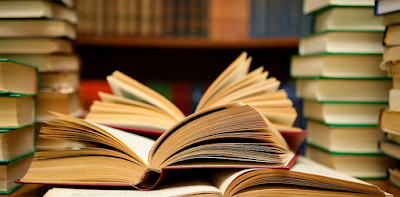 |
| Measurement and Instrumentation Principles by Alan S Morris PDF Book Free Download |
Hi there! In this article, we are going to talk about the Measurement and Instrumentation Principles by Alan S Morris and how you can download the Measurement and Instrumentation Principles by Alan S Morris PDF Book Free of cost. Also, we urge the users to avoid violating the privacy of content and buy the Measurement and Instrumentation Principles by Alan S Morris Book PDF to support the authors and publishing houses. But we have also provided the Measurement and Instrumentation Principles by Alan S Morris Free Download in PDF Book format for you guys and girls who cannot buy this novel.
Measurement and Instrumentation Principles by Alan S Morris Book Details
| Book Name | Measurement and Instrumentation Principles |
| Author | Alan S Morris |
| Category | Electrical Engineering Books, Education Books |
| Book Language | English |
| Pages | 492 |
| ISBN | 0750650818 |
| Country | India |
| Book Size | 5 MB |
How to Download Measurement and Instrumentation Principles by Alan S Morris Book PDF?
We have uploaded the PDF version of Measurement and Instrumentation Principles by Alan S Morris Book for free download. We hope we were able to satisfy your query for Measurement and Instrumentation Principles by Alan S Morris PDF Book Free Download.
Download Measurement and Instrumentation Principles by Alan S Morris Book PDF
For the convenience of the user, we have uploaded the Measurement and Instrumentation Principles by Alan S Morris PDF Book Free Download version to Google Drive. The benefits of using Google Drive for Measurement and Instrumentation Principles by Alan S Morris PDF Book Free Download are that you can share the link with your friends, family, or colleagues, and they will be able to download or read the Measurement and Instrumentation Principles by Alan S Morris Book PDF using the link.
>> BUY BOOK HERE << |
>> CLICK TO READ << |
About Measurement and Instrumentation Principles by Alan S Morris Book
Measurement and Instrumentation Principles is a field of study that focuses on the theory, techniques, and practices of measuring physical quantities and obtaining accurate data. This field is essential in various industries, research, and scientific applications where precise measurements are required to understand, control, and optimize processes. Here's an overview of measurement and instrumentation principles:
-
Measurement Basics:
- Measurement: The process of quantifying a physical property, such as length, temperature, pressure, voltage, or current.
- Physical Quantity: A property that can be measured, such as length, mass, time, temperature, etc.
-
Instrumentation:
- Instrument: A device or system used to make measurements.
- Sensor: A component of an instrument that detects a specific physical quantity and converts it into a readable signal.
- Transducer: A device that converts one form of energy to another, such as converting a mechanical displacement into an electrical signal.
-
Measurement Parameters:
- Accuracy: The closeness of a measurement to the true value.
- Precision: The degree of consistency or reproducibility in measurements.
- Resolution: The smallest change in the measured quantity that can be detected by the instrument.
- Sensitivity: The change in output for a given change in input.
-
Calibration and Standards:
- Calibration: The process of adjusting an instrument to make its measurements accurate and traceable to recognized standards.
- Standard: A reference value or device used to establish measurement units and accuracy.
-
Types of Instruments:
- Analog Instruments: Instruments that provide continuous output values.
- Digital Instruments: Instruments that provide discrete numerical values as output.
-
Measurement Techniques:
- Direct Measurement: Measuring a physical quantity directly using a sensor or instrument.
- Indirect Measurement: Measuring a quantity indirectly by relating it to other measurable parameters.
-
Instrumentation Signals:
- Analog Signals: Continuous signals that vary smoothly over time.
- Digital Signals: Discrete signals that have specific numerical values.
-
Signal Conditioning:
- Amplification: Increasing the magnitude of a signal for better detection and measurement.
- Filtering: Removing unwanted noise or frequencies from a signal.
- Linearization: Adjusting the signal to ensure a linear relationship between input and output.
-
Types of Sensors:
- Temperature Sensors: Measure temperature variations.
- Pressure Sensors: Measure pressure changes.
- Strain Gauges: Measure mechanical deformation.
- Accelerometers: Measure acceleration or vibration.
- Flow Meters: Measure the flow rate of fluids.
-
Data Acquisition Systems:
- Data Logger: Collects and stores measurement data over time.
- SCADA (Supervisory Control and Data Acquisition): Monitors and controls industrial processes.
-
Applications:
- Measurement and instrumentation principles are used in industries like manufacturing, healthcare, automotive, aerospace, energy, and scientific research.
- Examples include temperature monitoring in industrial processes, blood pressure measurement in healthcare, and control systems in automated manufacturing.
Accurate measurement and reliable instrumentation are critical for making informed decisions, ensuring product quality, maintaining safety, and advancing scientific knowledge in various domains. The principles in this field continue to evolve with advances in technology and the development of new measurement techniques and instruments.






0 Comments:
Post a Comment